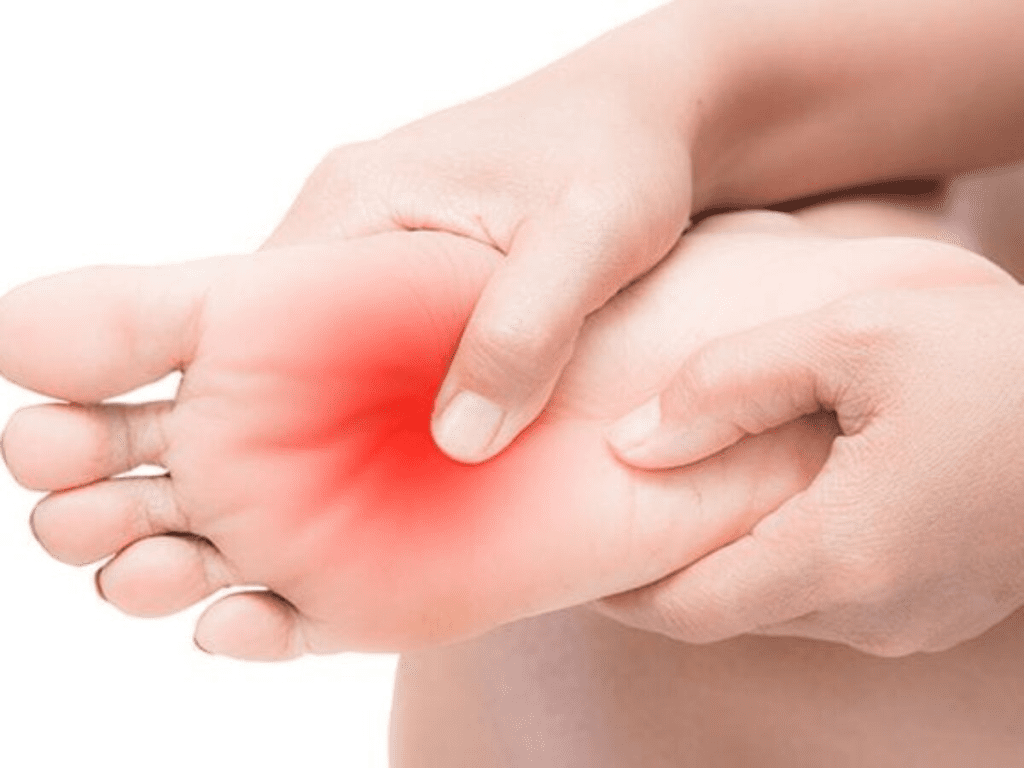Ever feel like your feet are burning, tingling, or strangely numb? It’s easy to dismiss it—maybe you were on your feet too long or your shoes were too tight. But sometimes, those odd sensations aren’t just harmless annoyances. They can actually be early warning signs of more serious health issues.
Feet are often the first to show signs of nerve damage or circulation problems. They’re far from passive passengers—they’re messengers. And if you learn to listen, your feet might help you catch underlying problems early.
Let’s break down the three main warning sensations—burning, tingling, and numbness—and see what they might be trying to tell you.
Why You Shouldn’t Ignore Unusual Foot Sensations

Your feet are the furthest point from your heart and central nervous system. Because of that, any disruption in blood flow or nerve signaling is likely to show up there first. So when your feet start sending strange signals, it could be your body trying to get your attention.
Whether it’s nerve damage, vitamin deficiency, or poor circulation, catching the signs early can help prevent bigger problems down the line.
Burning Feet: A Sign of Nerve Trouble
A burning sensation in your feet—especially at night—could mean more than just tired muscles. If your feet often feel like they’re on fire, you may be dealing with:
- Peripheral neuropathy, which is common in diabetics and causes nerve damage
- Vitamin B12 deficiency, essential for healthy nerve function
- Alcohol-related nerve inflammation
- Thyroid imbalances, which can slow circulation
To help, make sure your diet includes B vitamins, especially B12. If you have diabetes, keeping your blood sugar in check is key. Avoid alcohol overuse, and consider getting your thyroid levels tested.
Tingling Feet: That Pins and Needles Feeling
We’ve all experienced that odd, tingling “pins and needles” sensation. Maybe you sat cross-legged too long or wore tight shoes. But when it happens often and without a clear reason, it could point to something more.
Video : Your Feet Can Tell You A Lot About Your Health
Frequent tingling may be caused by:
- Nerve compression, possibly from spinal issues or poor posture
- Poor circulation due to heart or vascular problems
- Early stages of diabetes or prediabetes
- Deficiencies in vitamins like B1, B6, B12, E, or niacin
To improve circulation and nerve health, eat more leafy greens, nuts, and whole grains. Make stretching part of your daily routine and try switching to more supportive shoes. If symptoms persist, ask your doctor to check your blood sugar levels or vitamin profile.
Numbness in the Feet: When Feeling Fades Away
Unlike burning or tingling, numbness doesn’t hurt. That’s what makes it easy to ignore—and dangerous. Loss of sensation means your nerves might not be functioning properly. It could also mean poor blood flow to your extremities.
Possible causes include:
- Circulatory problems that restrict oxygen to your nerves
- Diabetic neuropathy or chronic inflammation
- Herniated discs or spinal conditions affecting the lower back
- In some rare cases, early signs of multiple sclerosis
Track when and how often you experience numbness. Does it happen after standing? Is it symmetrical? These clues help doctors figure out the root cause. Testing may involve circulation studies, nerve conduction tests, or spinal imaging.
Simple Daily Tips to Support Foot and Nerve Health

The good news? You don’t have to wait for symptoms to get worse before taking action. Here are a few habits that can help keep your feet (and nerves) happy:
1. Get Your Blood Sugar Under Control
Even if you’re not diabetic, frequent sugar spikes can damage nerves over time. Reduce processed sugars, eat fiber-rich meals, and stay active.
2. Move Often, Sit Less
Daily movement helps keep blood flowing to your legs and feet. Walk, stretch, dance—whatever keeps your body moving. Just don’t stay still for too long.
3. Boost Your Vitamin Intake
A balanced diet rich in vitamins B1, B6, B12, E, and folate can go a long way. Consider a B-complex supplement if your diet is lacking.
4. Pick the Right Shoes
Poorly fitting shoes can restrict blood flow or compress nerves. Choose shoes with good support, soft soles, and room for your toes.
5. Stay Hydrated
Water helps blood and nutrients move efficiently through your body. Dehydration can make symptoms worse and hinder recovery.
Video : The Foot Expert: Your Toes Can Predict If You’ll Die Early! This Will Fix Plantar Fasciitis!
When It’s Time to Call the Doctor
While minor discomfort isn’t always serious, some signs demand attention. Contact a healthcare provider if:
- You experience sudden numbness or weakness in one or both feet
- The sensations spread or worsen rapidly
- You have balance issues or difficulty walking
- You develop foot ulcers that don’t heal
Don’t wait—early detection is key to effective treatment and long-term recovery.
Final Thoughts: Your Feet Know More Than You Think
Your feet might not speak, but they’re constantly sending signals about your health. Whether it’s a burning sting, a subtle tingle, or full-on numbness, these sensations matter. They’re often your body’s first warning system for nerve issues, circulation problems, or nutrient deficiencies.
Instead of brushing it off, listen to what your feet are telling you. Keep moving, eat well, and don’t hesitate to get help when something feels off. With a little awareness and some lifestyle tweaks, you can stay a step ahead—literally and figuratively.


